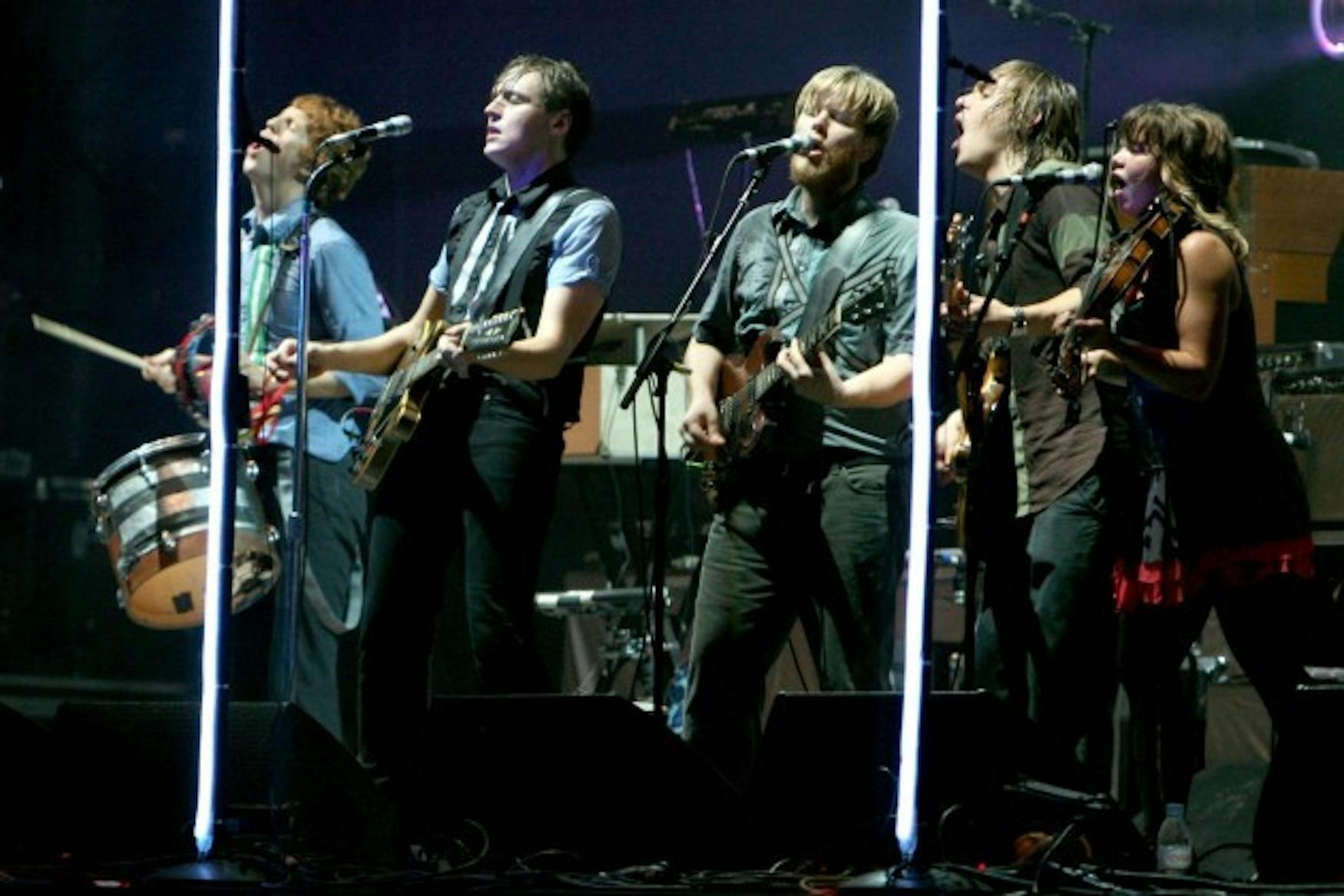Arcade Fire releases philosophical album
Making a successful rock album in 2013 is a daunting task, but Arcade Fire has once again managed to create a fantastic musical journey with their latest album, Reflektor. Indie rock today has been reduced to generic strange cross-over fantasies like Imagine Dragons and Awolnation-who can chart a single but fail to make cohesive projects. The rest of popular music is drowned out by high frequency electronic dance music, crystal clear pop and hip-hop. Releasing four great critically and commercially successful albums consecutively is an amazing feat and with Reflektor, Arcade Fire proves their greatness is no lucky streak.
My first impression of Reflektor came when Arcade Fire put the full album stream on YouTube in the longest lyric video ever made. On Oct. 24, Arcade Fire posted their entire album against the backdrop of Black Orpheus, an influential 1959 film that depicts the Carnavale in Brazil. While Reflektor sounds like a modern and Western-centric album with its themes of alienation-the band's vocalist, Win Butler, has publicly noted the influence of S??ren Kierkegaard's essay, "The Present Age"-its musical influences start in a foreign place.
The album writing and recording took place in Haiti and Jamaica, and you can hear the Caribbean and Latin American influences permeating throughout. With the guitars twanging in lo-fi stereo, the hand drums beating out infectious rhythms and the super-chemistry of a traditional rock band that has been playing together for over a decade, Reflektor has a dance-ability that is steeped in a culture completely divorced from four-on-the-floor electronic dance music. At first you may be hesitant to dance to these worldly rhythms, but soon your instincts take over and you'll notice your feet moving to tracks like "Flashbulb Eyes" and the title track, "Reflektor." It doesn't hurt that James Murphy from LCD Soundsystem handles the production, making every kick and snare punch your abdominals with movement.
Lyrically, Reflektor takes on a lot of themes. But here's Arcade Fire's genius. You can listen to tracks like "It's Never Over (Oh Orpheus)," which is about something ending, and it can relate to you on a personal level. However, the song still operates on a mythical and literary level, taking from the famous Greek tale of Orpheus and his wife Eurydice. Even further, it could be a metaphor to describe singer and guitarist Win Butler's relationship with his wife, R?(c)gine Chassagne, who is a multi-instrumentalist and band member. By creating a musical style that is accessible but still complicated, Arcade Fire achieves a level of sophisticated art-rock that will go as deep down the rabbit hole as you want to go.
The highlight of the double-album (which runs about 75 minutes) is clearly the Haitian-inspired track "Here Comes the Nighttime." It starts off in a cinematic frenzy and cools off to a groovy jam that modulates with each new verse.
Arcade Fire's recording process sounds spontaneous yet carefully crafted at the same time-an extremely difficult blend to accomplish. Guitars move in and out of the left and right sides, congas enter and exit and the drums continue to pound the groove, and by the end, if you have any sense, you're tapping your feet and following the frenzy of the Carnavale.
Reflektor is a party that doesn't take place in a frat house or an expensive club, but one that ebbs and flows in a foreign land, a place that may or may not have electricity, but where people still find the time to dance, laugh and cry in a fantasy age that is surprisingly silent of technology.



Please note All comments are eligible for publication in The Justice.